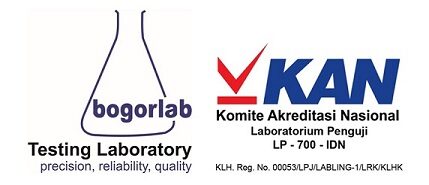L&D Four: Values, Skills, Attitude, and Knowledge
Source >>>
Learning and Development has been a very essential unit to build the human capital capacity, to make the companies grow and sustain. However, the facts that many companies still collapse despite their costly and extravagant programs in L&D got us thinking. Have these companies been doing the right thing?

Introducing the L&D Four
Corporate training and development is an essential part of human resources, to develop their human capital capacity, to gain profit, and to keep the company going. They spend an extensive amount of money to conduct courses that merely focus on improving skills on using the most recent technology, applying marketing approaches, analysing big data, to gain as high profit as possible.
As stated by Bryan Casey, Growth Strategist at Ironpaper, in 2018, the trends of corporate eLearning from 2018 are around Reporting, Big Data Analysis, User-generated content (UCG), Work-Life Skills, and Leadership and Management Training. All of those types of focus points in learning and development in corporate contexts revolve around knowledge and skills and are intended to grow and strengthen the companies mostly from inside/within.
However, what companies cannot ignore is the fact that all industries also involve people from outside the companies and relationships with people and that is why the induction of values and attitude should be a part of the learning and development core elements. Therefore, an ideal learning and development program should cover VSAK (Values, Skills, Attitude, and Knowledge).
Incorporating values and attitude along with skills and knowledge matters because companies, people/society, and surroundings/environment should create good synergy in order to sustain. This article would give some contexts on how VSAK would be taken into action in learning and development.
VSAK: Too Cool for (Only) School
Most companies’ goals are to maximise profit, but upholding/to uphold values and principles is also as important. James Franklin, the 16th head football coach in the storied 127-year history of the Nittany Lion program, in his talk, stated that the sustainability of companies and corporates lie in relationships with people.
“We should hold values and respect others’ and act upon them in forms of attitude.”
However, being knowledgeable with values should somehow be learned and nurtured in the learning environment and must be further ingrained culturally and professionally. Therefore, the concept of VSAK (Values, Skills, Attitude, and Knowledge must be taken into account to empower and build relationships that happen within the company and between company and society to create beautiful synergy that leads to sustainability and profitability.
The framework of VSAK was first formulated by NIE (National Institution of Education) in Singapore, whose desired outcome is to generate/shape the child-centred teacher – one who is accustomed to the child’s needs as a learner corresponding to their individuality, improvement and diversity. This goal can be achieved by creating a role-modelling environment which goes beyond a classroom setting and embraces the teacher as a facilitator of learning, a mediator of the knowledge milieu and a designer of learning environments.
The highlights of the concept are evolved around skills that nurtures ones’ potential to become active contributors to the community, including company and society. The term VSAK can be perceived with other names like value education, or social learning that leads to a fruitful community with social literacy; a community which is socially conscious and is knowledgeable of social skills and human values that reinforce people’s capacity to act positively and responsibly in their social and professional roles; as family member, worker, citizen and lifelong learner.
This invaluable concept seems to be challenging to be applied in a corporate context, but by identifying the culture and core values of a company and by examining the existing learning and development in a company, incorporating VSAK would not be as effortful.
The Divergence between L&D and Corporate Culture
In order to incorporate VSAK in a corporate eLearning context, one should revisit the core of corporate culture. In his article in Investopedia, Evan Tarver defines corporate culture as the beliefs and behaviors that determine how a company’s employees and management interact and handle outside business transactions. The essential points of any corporate cultures should cover the following things: beliefs and behaviors of the employees and management, company size, culture and traditions, economic trends, international trade, and products, as well as ideology and practice.
Those elements highlight collective mentality, that depends upon the quality of relationships among people, because good relationships will definitely lead to positive mentality and would create a positive atmosphere in the company, which will result in company/corporate sustainability.
However, the big question remains on how VSAK can be incorporated in corporate learning and development programs.
LSA Global released an article that highlighted the facts that there has been some disconnection and gaps between existing training and on-the-job behavior and performance. The article quoted the facts given by Gartner, 24×7 Learning, and McKinsey that (1) almost three-quarters of employees do not believe they have mastered the skills they need to do their jobs; (2) only 12% of learners apply the skills from corporate training back on-the-job; and (3) only 25% feel that the training they receive makes a measurable difference in the on-the-job performance.
Most learning and development programs rely merely on transferring skills and knowledge that are expected to be effectively used when the learners are giving their on-the-job performances and generating profit for the company, yet participants are unable to consistently apply the new skills and knowledge on-the-job.
The article also stated the facts that many Learning and Development practitioners often flounder in communication, problem-solving, decision making, time management, delegation, workload management, goal setting, coaching, and giving feedback. In short, the programs have not created enough opportunities to maximize both individual and group experiences; how the employees conduct themselves in a community, how they practice their values and beliefs, how they compete, how they build relationships with others.
The gaps are caused by the fact that what they value and what they do are not in line and the companies somehow forget that those values, which would shape the collective mentality, can be used to guide a company, to be the compass to guide co-workers, and customers, to create innovation, integrity, profitability, in the ways that the employees understand since they use their values.
Therefore, inserting VSAK in learning and development programs of a company is essential, since it would certainly lead to expanding network and gaining public trust as well as improving social cautious initiatives like programs in CSR.
VSAK for CSR
Injecting values and attitudes in a corporate context is often directed to the Corporate Social Responsibilities (CSR) programs, but actually it is much more than that, but CRS can be the perfect platform to “inject” the elements of values and attitude after the transfer of skills and knowledge and also build brand value to the target market.
Since CSR usually aims to be socially accountable and aims at building brand value and spurging positive/beneficial social changes and one favorable way to do both is by building stronger relationships with others.
Take an example on how The Coca Cola company perceives a value of “Believing that all people can grow and contribute” and has observed that in some developing countries, women have not had as many opportunities as men have. Therefore, using the tagline that “Women are key to the world’s shared success”, they focus on empowering women both in the workplace and throughout the world and created an initiative called 5by20, aiming to economically empower 5 million women across our value chain by the end of 2020.
What The Coca Cola Company has done to act on this initiative is by providing business skills training, access to financial services and assets, and connections with peers and mentors and as from 2018, 5by20 has empowered more than 3.2 million women across 92 countries. However, The Coca Cola company is aware of the fact that achieving the women’s empowerment vision depends on building adaptable models and powerful partnerships. They collaborate with hundreds of partners and organizations around the world to develop local programs and then scale the most successful programs to make the initiative last, and to make a positive and locally relevant impact.
By looking at the example of The Coca Cola Company, it can be drawn conclusion that CSR programs should be able to engage people by having awareness of the cultural, social, and environmental issues, observing and identifying the values that are embraced by society and adhering them with company’s core values so they are able to build good relationships with as many people as possible. VSAK should be a part of the framework for a company’s CSR model, and should be carefully acted on.
Not only limited to CRS programs, Learning and Development Unit can implant VSAK in other types of training by highlighting social literacy skills and implementing some of VSAK elements like empathy, belief that all people can grow and contribute, commitment to nurturing the potentials of self and others, embrace and power of diversity, passion, strive to improve, collaboration and communication, mentorship and social responsibility.
For this reason, as an effort to build social literacy skills, incorporating VSAK in corporate eLearning modules must be taken into high consideration. The modules can involve task-based or project-based strategies in their social learning as a part of their training.
When properly implemented, the elements of social literacy should be ingrained in the values and culture of a company, and positively affect the way the company does business and those certainly lead to public trust gain, good branding, good publicity, overall profitability and success of a company.
Image: © kasto – stock.adobe.com

